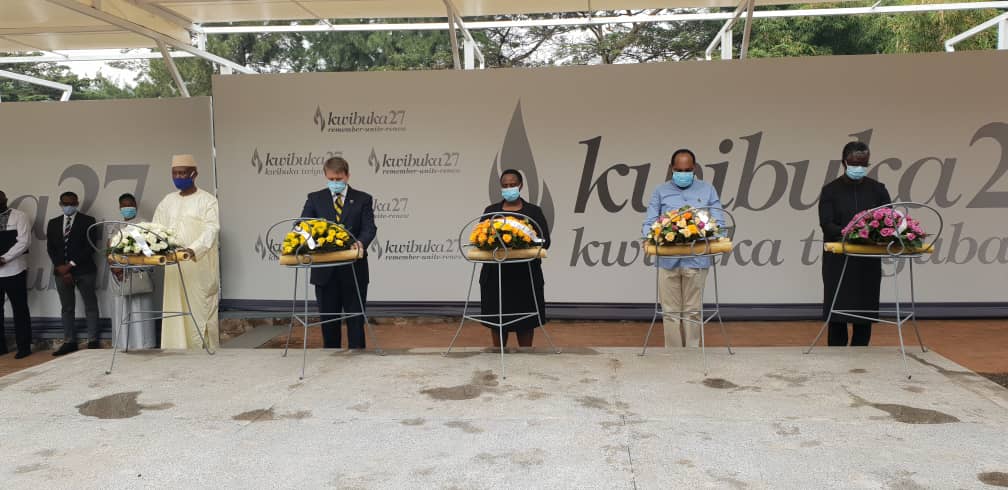Civil society organizations and INGOs support genocide survivors

RGB CEO Dr Usta Kayitesi and other guests lay the wreath at the Kigali Memorial Site.
The Rwanda Civil Society Platform (RCSP) and the Network of International INGOs operating in Rwanda (NINGO) organized a joint commemoration event to remember the victims of the 1994 Genocide against the Tutsi.
In addition to the actual theme for #KWIBUKA27, “Remember, Unite, Renew”, on this occasion, Civil Society family remembered the 1994 Genocide against Tutsi with a special reflection on “the role of Civil Society in the fight against genocide ideology and denial”. Attended by officials from RGB, CNLG and UN family, the event involved a series of activities, including a visit and laying of wreath at the Kigali Memorial Site at Gisozi and a session with survivors to listen to testimonies of resilience and recovery. To comfort genocide survivors, the two entities presented a 10 million package to Ibuka “Survivors in Solidarity” initiative to support genocide survivors most affected by the COVID pandemic.
“This should never happen again and, as civil society, we are honored to be part of this recovery process,” observed the President of RCSP, Dr Joseph Nkurunziza.
Commenting on the same, the Chairperson of NINGO, Sean Kerrigan, said, local CSOs and International NGOs continue to work together to improve the welfare of genocide survivors and other vulnerable communities.
The activity was concluded with a live broadcast show on how CSOs and INGOs continue to be part of Rwanda’s development agenda and post-genocide recovery
RCSP composed of 11 national umbrella CSOs with nearly 1,500 member organizations, RCSP serves to empower, represent, coordinate and defend public interest and interest of its members at national, regional and international levels for development, effectiveness and sustainability.
NINGO is the Network of International NGOs in Rwanda (NINGO) started in 2005 and is now composed of over 80 non-for profit organizations. If offers a platform for members to network, share synergies and discuss issues of common interest.

